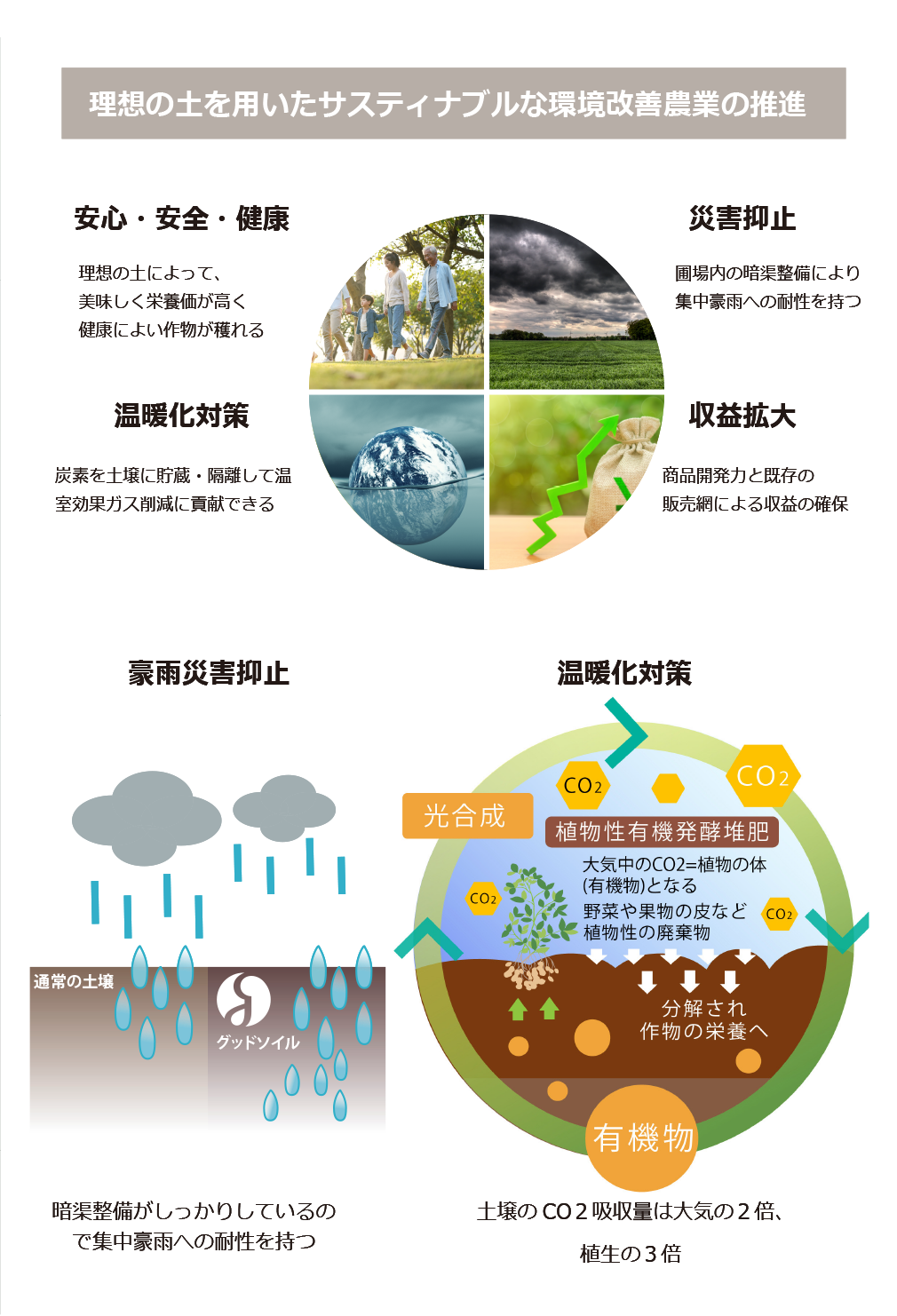01
Ideal soil
We come from the soil and to the soil we return
Although we knew this fact, we might have sacrifised and damaged our earth continuously to perceive the blessings of the nature with modern agriculture. As a result, it is now difficult for us to ditinguish between products that are good for health and the others.
Can we let this damaged soil being taken over by our precious children?
Our earnest feelings led to the encounter with Professor Emeritus Tanokura of the Graduate School of Agriculture and Life Sciences, the University of Tokyo.
"Good soil grows good food and makes happy." The basis for producing excellent crops is to stick to good soil. By analyzing and researching the components of soil and crops, we would like to contribute to people's healthy life. — We want to elucidate the mechanism and contribute to the healthy lives of people.
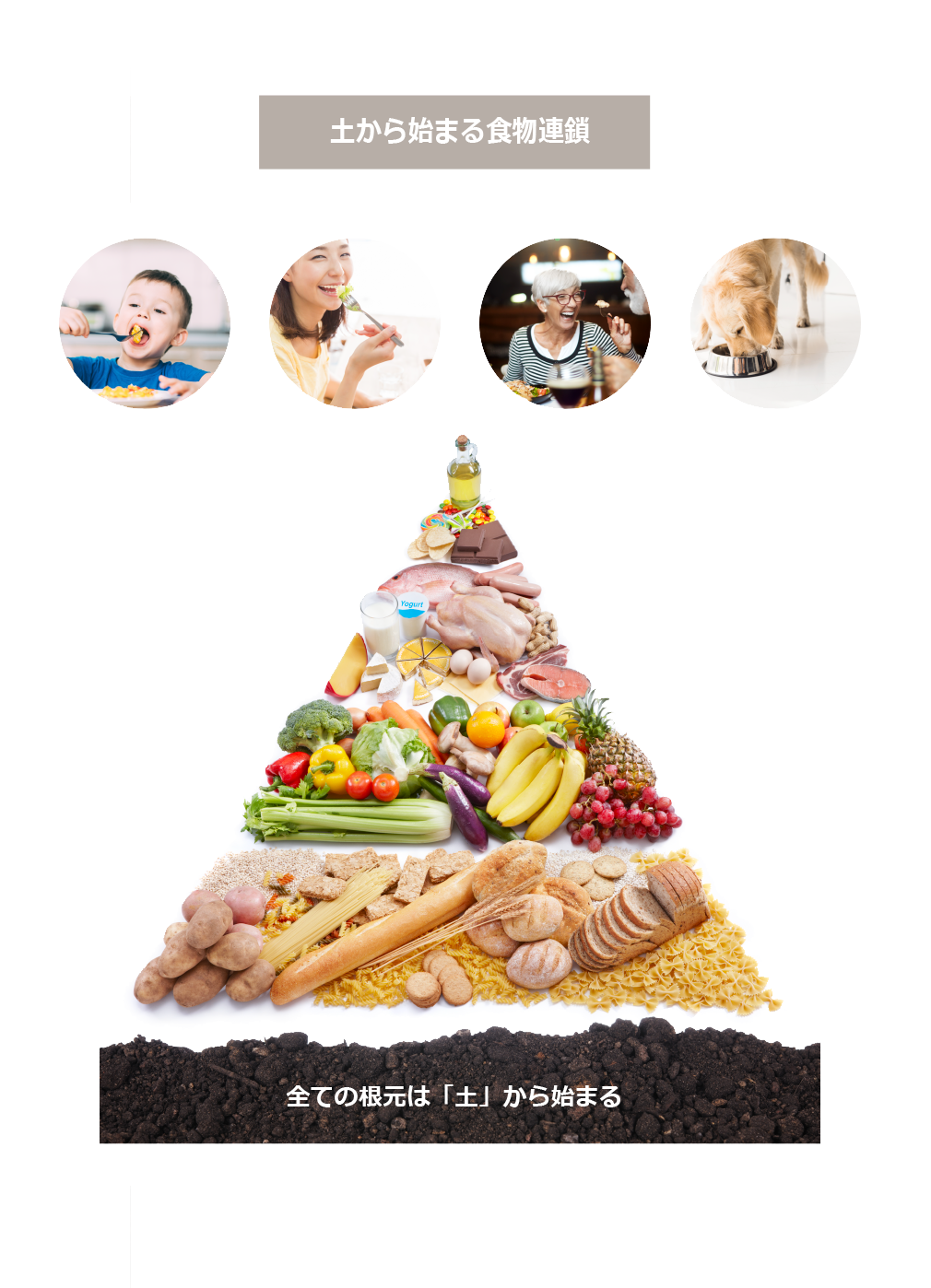
02
Safe & Reliable Blessings of food
Health benefits from a farm created by the University of Tokyo and soil professionals
What is the difference between crops grown in ideal soil and those grown in other soil? Let us explain by using lemons we produce as an example.
Blessed with a mild climate in the Seto Inland Sea, Hiroshima produces the largest quantity of lemons in Japan.Lemons contain vitamin C, citric acid, polyphenols, limonene, potassium, calcium, and other nutrients.
Vitamin C has skin beautifying effects, removes active oxygen, and prevents arteriosclerosis; citric acid has anti-fatigue effects and prevents aging; polyphenols have antioxidant effects and prevents lifestyle-related diseases; limonene has relaxing effects, promotes blood circulation, and increases appetite. Potassium can be expected to have effects and efficacy such as preventing high blood pressure and relieving swelling, and calcium can prevent osteoporosis.
We hope to use this ideal soil to grow other crops that are safe and delicious and deliver them to you.
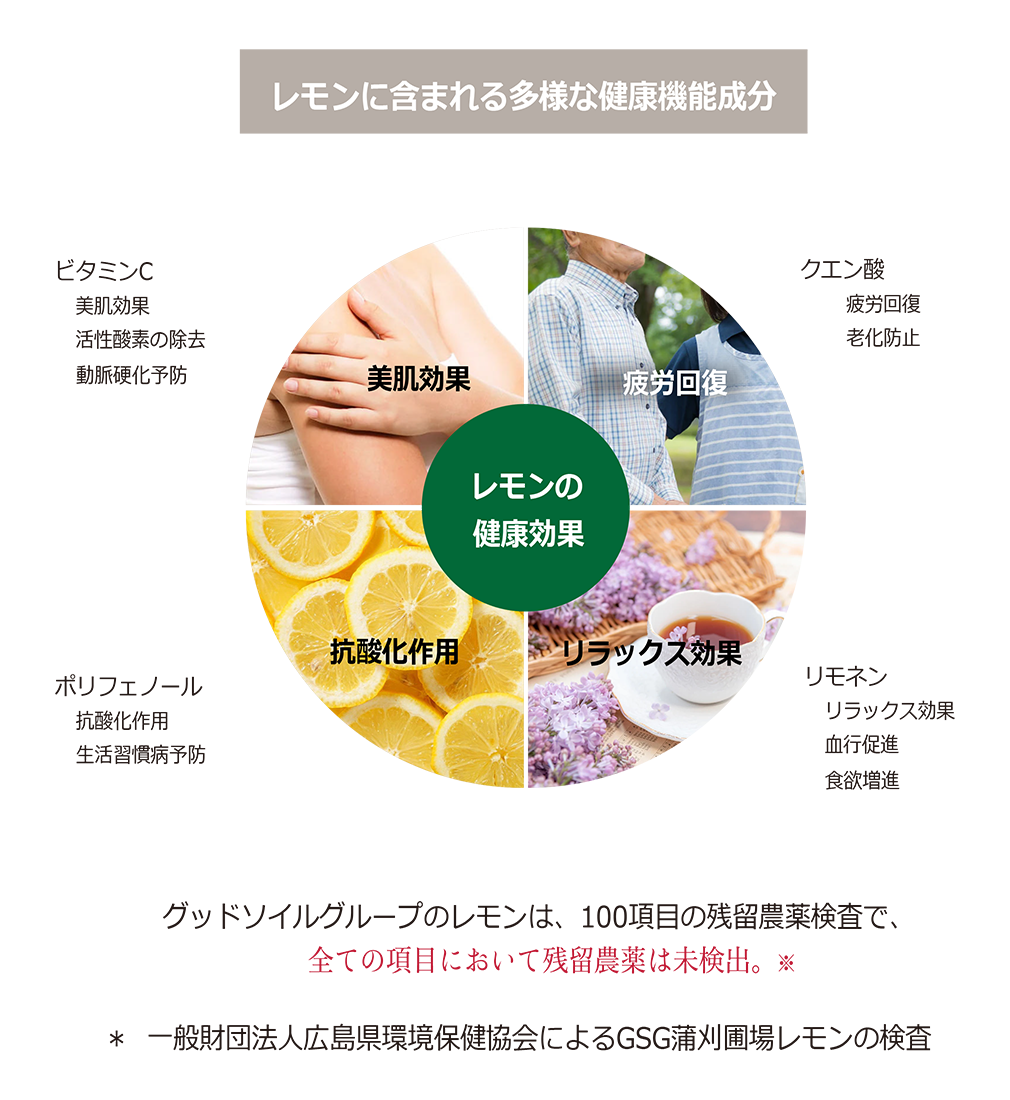
03
Stable harvest, Stable profit
Creating a system of increased harvest and stable profit with ideal soil
How can you change your harvest and profit when you grow crops using ideal soil?
If you grow peanuts, leeks, asparagus, and eggplants on a farm that uses our ideal soil, you will be able to harvest more than you would on a normal farm, in addition to making them more delicious and healthier. Depending on the items, you can expect to double your harvest rate.
In addition, our farm is more resistant to heavy rains than normal fields (the culvert in the GSG field is 60 cm wide and 120 cm deep, while the culvert in the normal field is 40 cm wide and 70 cm deep, and it drains very well because of the large amount of bark fertilizer used).
In the future, we will also focus on transforming our farming operations into smart farms using ICT, IoT, robotics, AI, etc., to further stabilize and improve the efficiency of our crop harvesting cycle, and to further strengthen our stable profit structure through the commercialization of our crops.
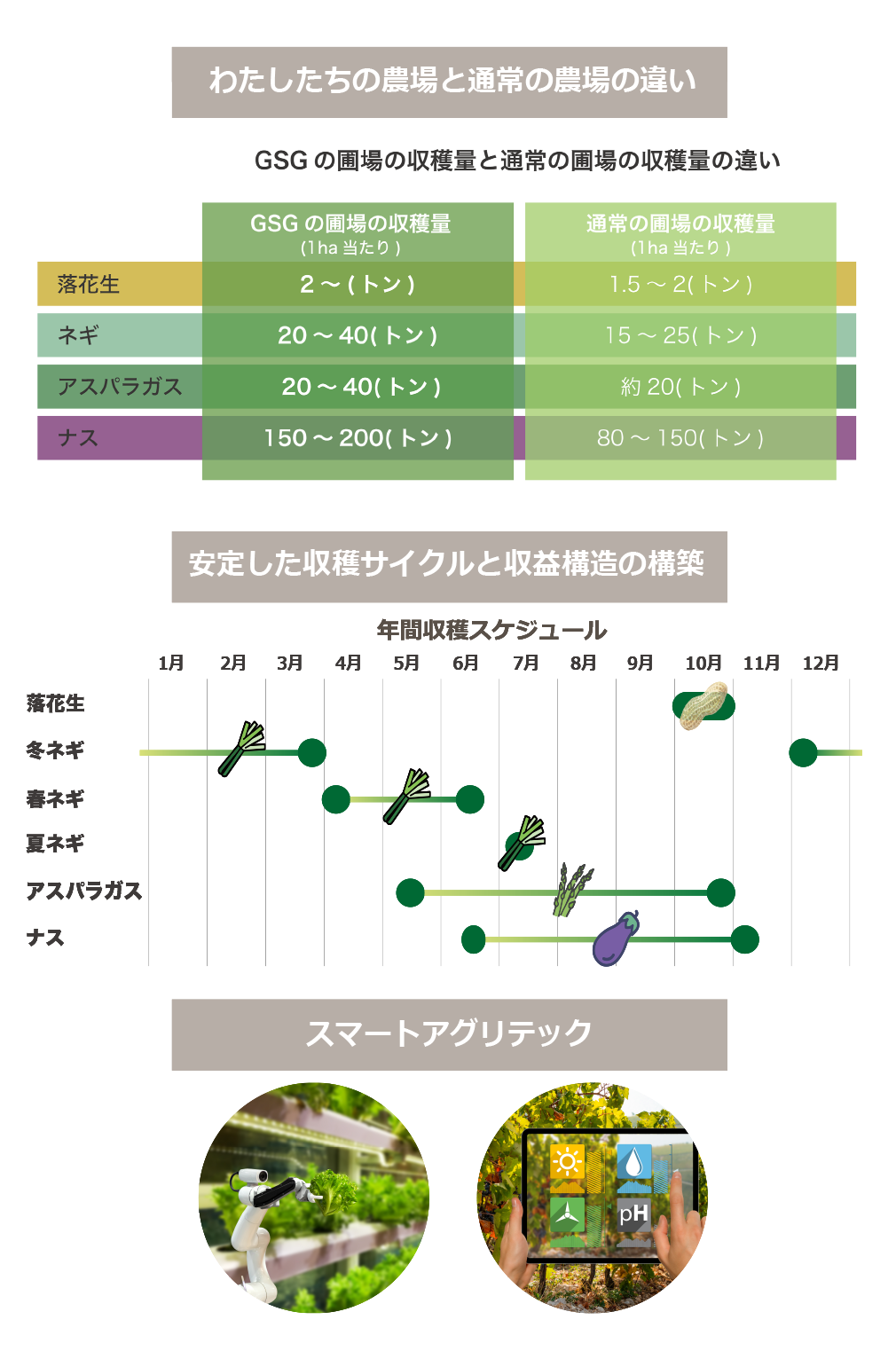
04
Goods, Offerings and Value
Strategic marketing originating from ideal soil
The products we produce are not only safe, secure, and high-quality agricultural products. We commercialize and market everything that is produced on the farm.
Making safe, high quality crops even more delicious and healthy (building strength upon strength)
Reviewing the nutrition and value of the roots, stems, and leaves of peanuts, which used to be discarded, and commercializing them (upcycling)
By collaborating with a famous Swiss chocolatier, we can make our products more accessible to a wider range of people (value-added brand power).
By commercializing our products in this way, we will be able to create a value chain of agricultural products that have been centrally distributed to the market, and through various channels (roadside stations, collaborations with local governments, temporary stores, hotels, etc.), we will be able to communicate our products and the value chain of "soil" that we want people to know about through our products.
Of course, the ideal soil itself will also be used by people, companies, local governments, national organizations, and various other places that need it, with the aim of "changing the soil of Japan into the ideal soil".
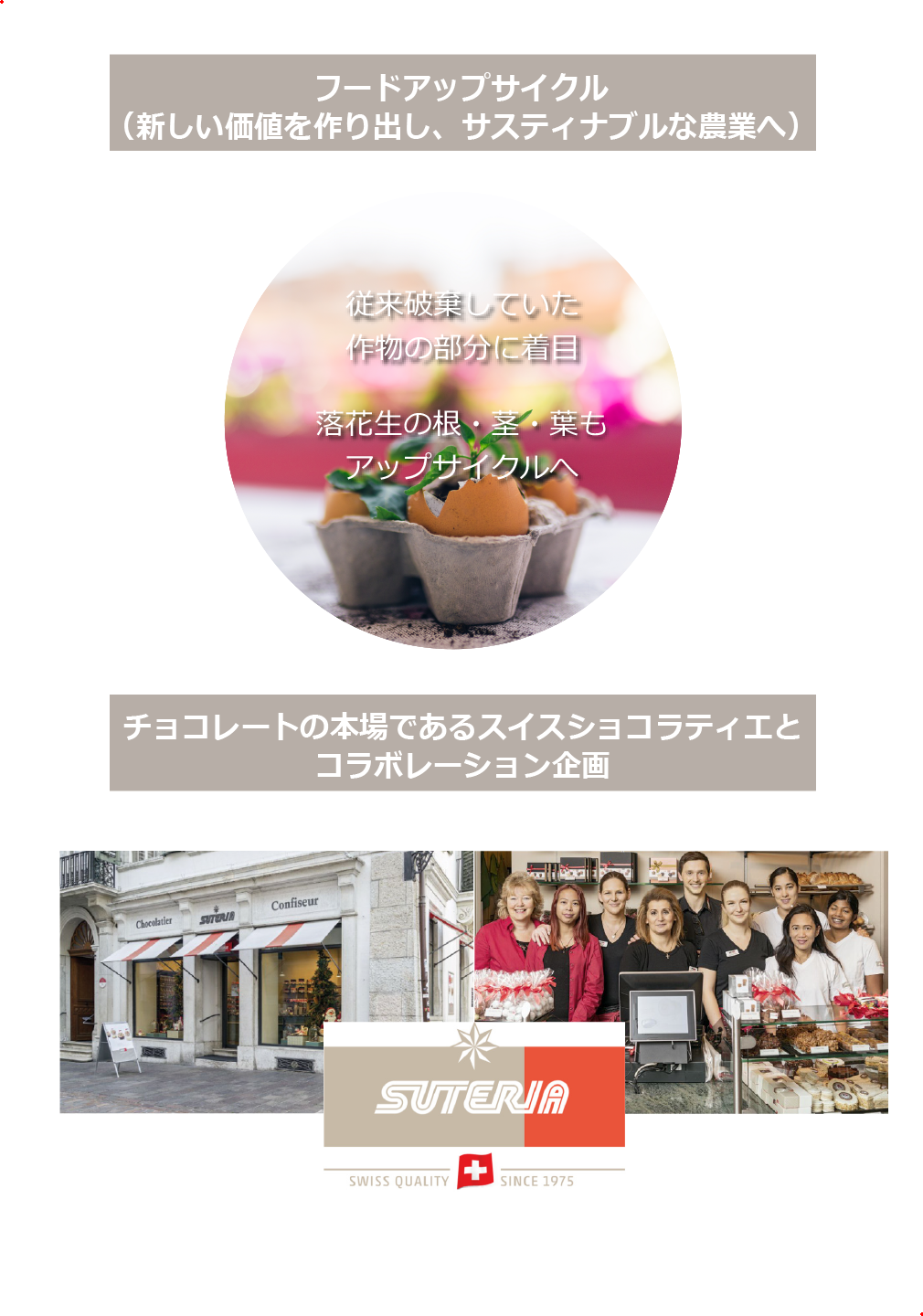
05
Agri-Trend
Making agriculture a dream job
In Japan, farming is often perceived negatively as being hard work, unattractive and unprofitable.
This negative image has overshadowed the beauty and fun of actual farming work, and the shortage of young new farmers and successors has become the norm.
Our goal is to dispel the negative image of farming and make it a status symbol.
We will propose new fashions originating from farms, and set up hands-on farms that use the land of agriculture as a medium to bring people together and bring smiles to their faces, as well as promote the latest information that will pave the way for the future of agriculture.
We aim to develop city farms and mini-garden farms to help people rediscover the value of the soil through a sensory farm experience, and to provide urban people with a hands-on learning experience of agriculture and actually grow crops.
The next step for us is to transform agriculture into a career that children want to pursue.
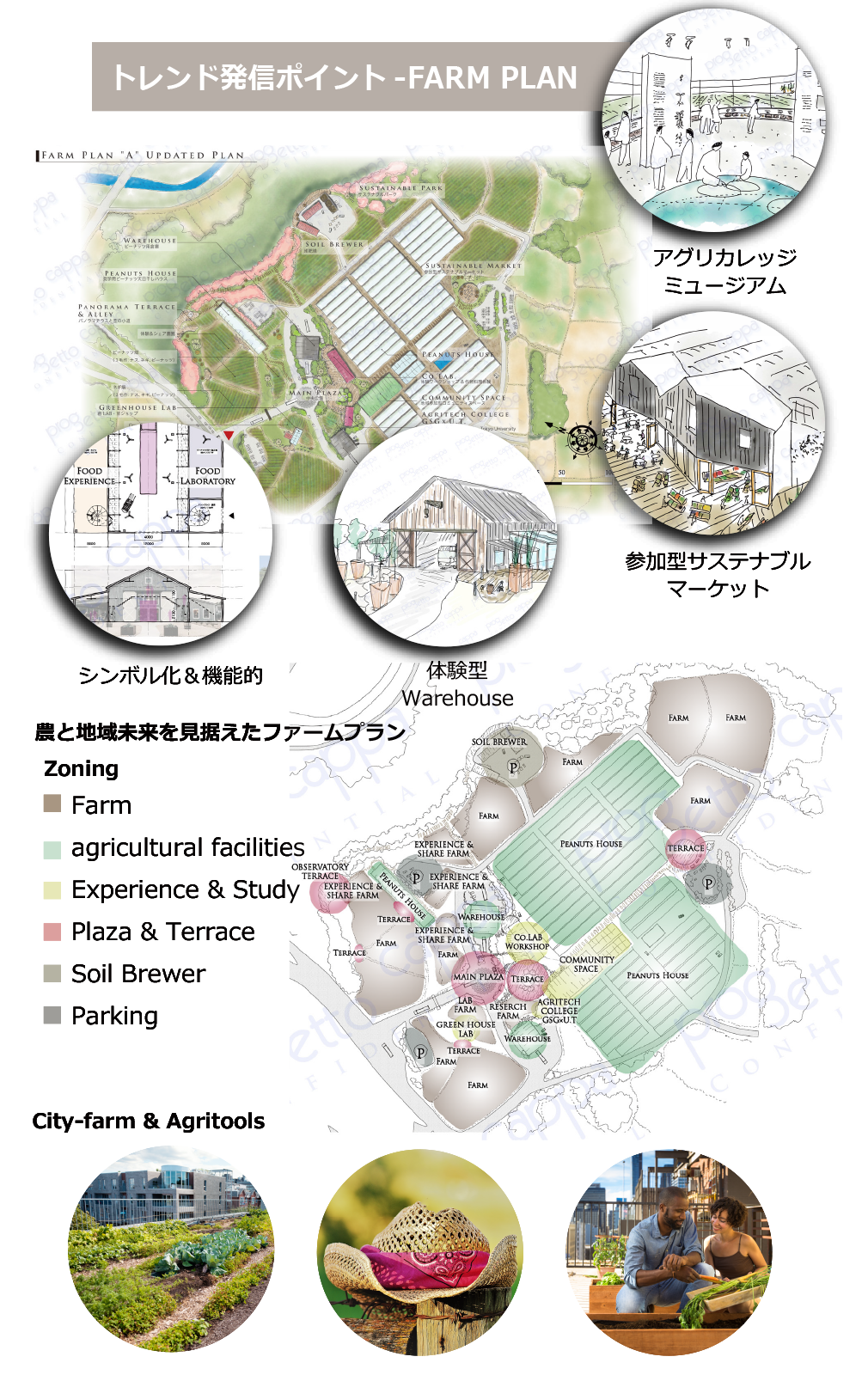
06
"New" agricultural platform
"New" agricultural platform - Good Soil Project
In Japan today, the environment surrounding agriculture is still difficult due to various factors such as lack of new farmers and lack of successors.
In order to change this situation, we have launched the "Good Soil Project" to create a system that allows anyone to easily participate in agriculture.
It takes a lot of time and money to prepare farmland, cultivating equipment, seeds and seedlings to start a new farm. With our Good Soil Project, however, the only initial investment is the membership fee, and you can grow delicious and healthy crops while creating the "ideal soil" and improving the environment.
In addition, since all of the infrastructure we have developed so far can be used to monetize agricultural products, our partner businesses can focus on cultivating the land.
Farming cannot be said to be risk-free, as the effects of weather and natural disasters cannot be completely eliminated. In this regard, the Goodsoil Project has a system where the only monthly expenses are a fixed common service fee (tentative) and the labor cost of the farm staff, making it easy to project the business outlook.
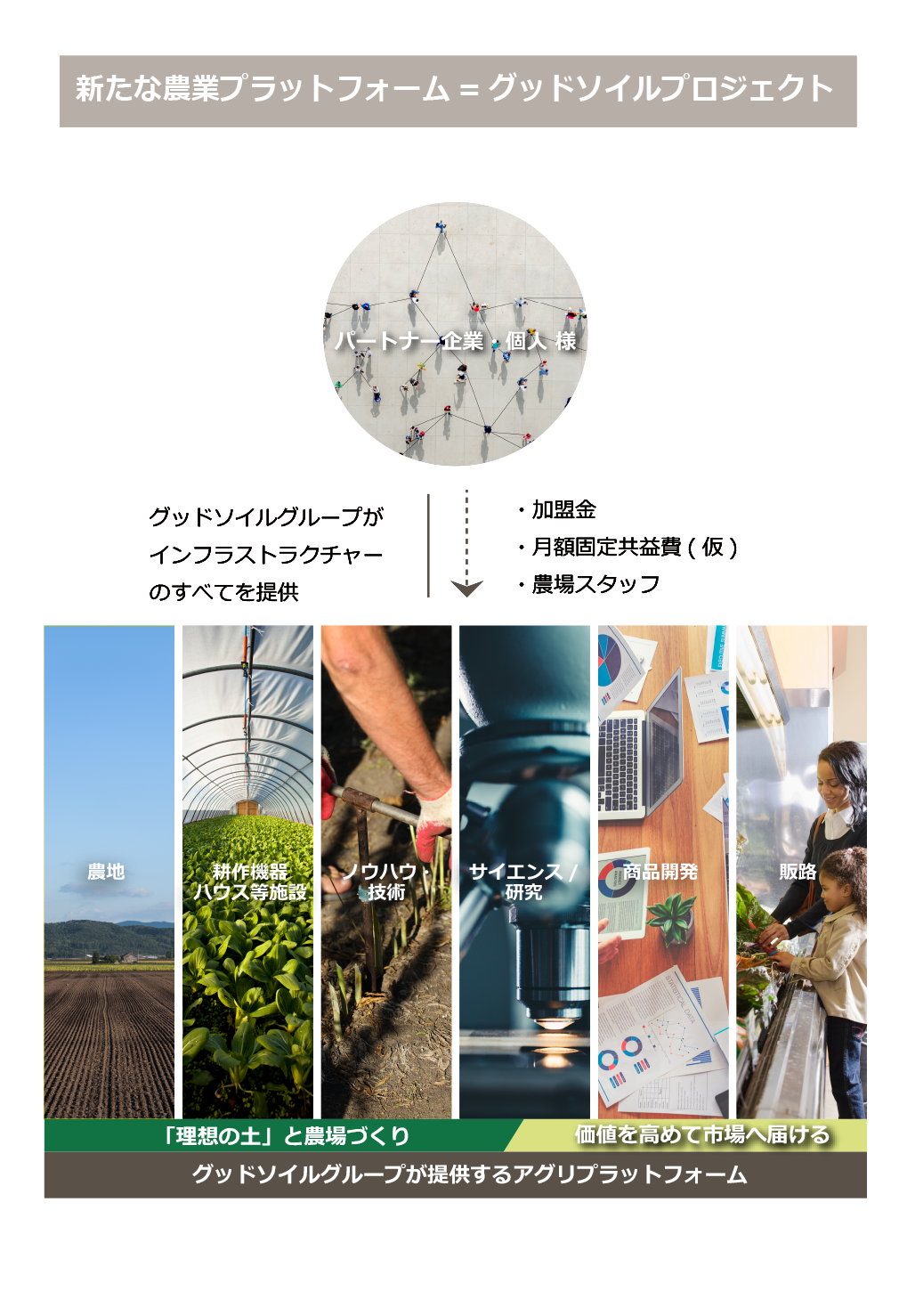
07
Domestic self-sufficiency and consumption
Improving Japan's food self-sufficiency ratio
Japan's food self-sufficiency rate is the lowest among developed countries, as the country relies heavily on imports for food.
It cannot be said that there is a guarantee of stable supply of safe and secure food, and about 90% of peanuts consumed domestically - which we are focusing on producing - are foreign imports. From the perspective of security and agricultural economic activities, a target has been set at the national level to increase the food self-sufficiency rate by fiscal 2030.
However, the number of farmers has been on a long-term downward trend, and the aging of the farming population is also a serious problem, as 70% of farmers are over 65 years old.
Through the Good Soil Project, which supports an increase in the number of farmers, improved efficiency of farmland, and secure agricultural management, we are working to solve this problem by increasing the planting of peanuts, which have a low domestic production rate, and increasing the self-sufficiency rate of crops such as lemons, which have been in low supply in Japan.
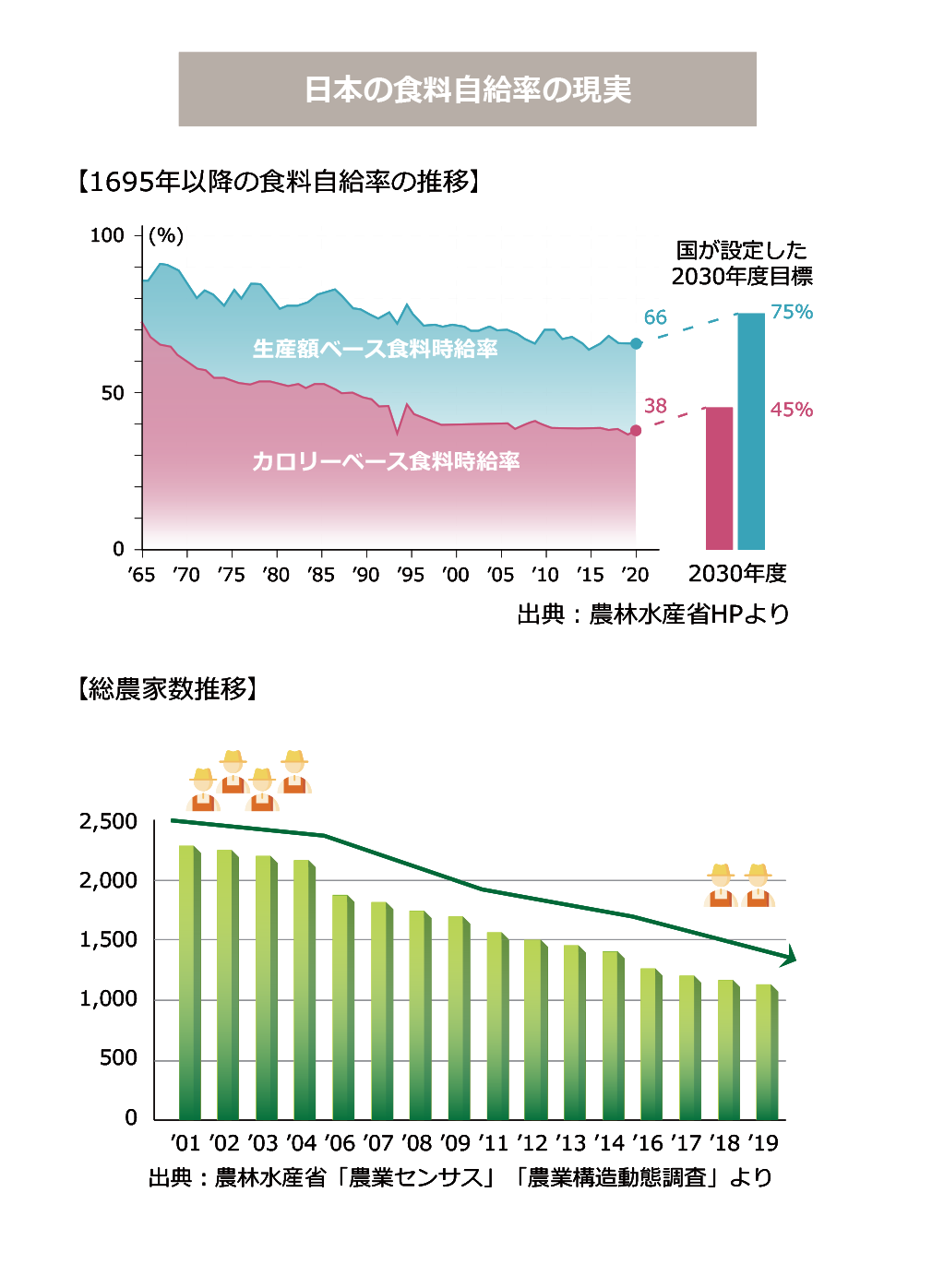
08
Environment improving agriculture
Reducing CO2 emissions and curbing frequent heavy rainfall disasters through environmental-improvement agriculture
As the SDGs suggest, corporate activities and environmental issues cannot be considered separately these days.
We will continue to reduce CO2 emissions and prevent disasters caused by torrential rains through sustainable and environmentally improving agriculture.
Since soil absorbs twice as much CO2 as the atmosphere and three times as much as planting, the importance of soil carbon storage is attracting attention as a means of reducing the emission of CO2 into the atmosphere, which has a major impact on global warming.
On our farm, microorganisms decompose the large amount of plant-based organic fermented compost that we put in over time to improve the soil and produce crops. Measurements show that the amount of carbon in the soil at the Goodsoil Group research farm is about twice the lower limit of the recommended value for good soil in general.
This means that our farms are storing more carbon, reducing CO2 emissions into the atmosphere and having a positive impact on the issue of climate change, and we are working to make further improvements.
Soil carbon storage as a way to combat climate change, drainage in the field that is resistant to heavy rainfall, and farming methods that produce delicious and healthy crops are what we call sustainable and environmentally improving farming.
